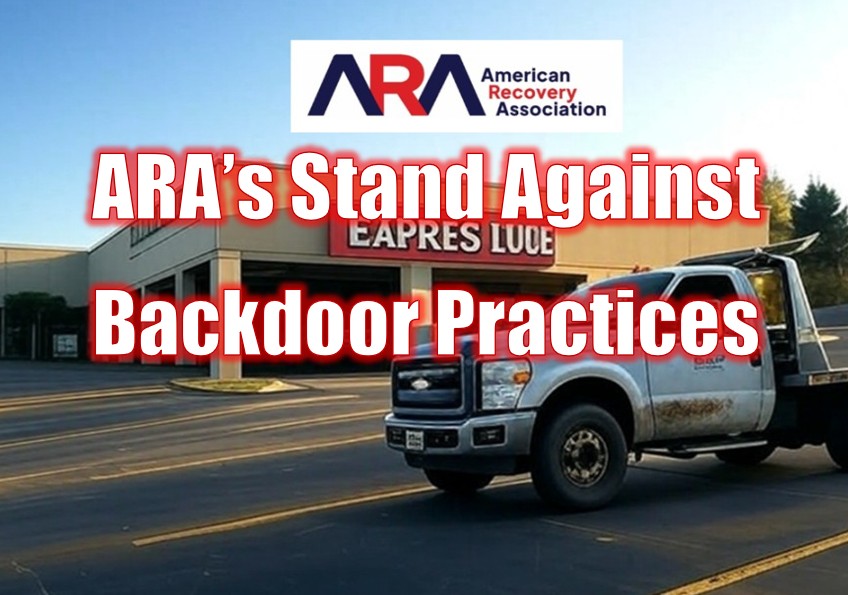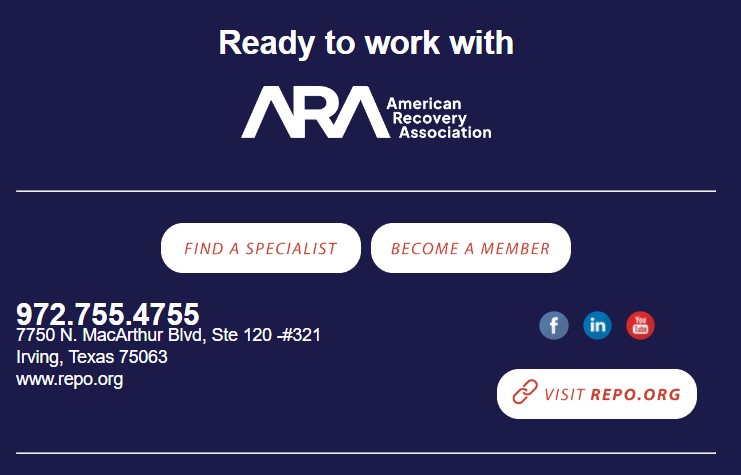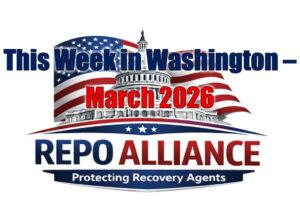“today, we found that we have lending institutions turning LPR live hit repossessions into impounds for Copart to pick up”
Over the past several months, ARA has held several meetings with lenders, forwarders, and Copart to increase awareness of the detriment to the repossession community as companies like Copart enter the repossession space.
Repeatedly, we’ve been assured these types of activities are only going to be for the impound part of some lenders’ portfolio. However, we now have proof this is not the case.
After we concluded an investigation today, we found that we have lending institutions turning LPR live hit repossessions into impounds for Copart to pick up, thus pulling the forwarding company, the LPR Company, and the repossession company from these repossessions—all in the name of saving a dollar and a “couple of days of recovery.”
Today’s investigation found that a repossession agent had a live hit on a vehicle with a very small bill at a quick lube facility. The agency called the forwarding company to get approval to pick up the vehicle, just as they should have. They were advised the vehicle needed to get switched to an impound and to stand by, after which the lending institution closed the account with the forwarding company and sent it to Copart.
This was an open repossession that got ripped from all parties and sent to a company where training is not a requirement for a repossession. This particular unit is in a state that has a compliance requirement that it must be reported to law enforcement, which at the writing of this letter has yet to be done.
This vehicle needed to be placed “on hook” in the RC App. Was that done? Who is allowing this inconsistent and haphazard process to persist within our space? These double standards must be addressed.
More importantly, we need clarity: What is officially being classified as a repossession? If these are not considered repossessions, then the corresponding compliance requirements imposed on agents should be eliminated immediately.
Additionally, are consumers being forgiven any remaining balances since these “tows” are not categorized as repossessions? These questions deserve immediate answers.
We must not allow this type of behavior to continue. ARA advises members and forwarding companies against working with lending institutions that operate in this manner. ARA also expects lender institutions to know and do better in order to ensure they are working with recovery partners who are certified, trained, and compliant.
ARA sets the highest standards in the industry for its members. By maintaining these standards, clients are assured members are professional, insured, certified, trained, and compliant.
Sincerely,
Vaughn Clemmons
ARA President
 ABOUT AMERICAN RECOVERY ASSOCIATION
ABOUT AMERICAN RECOVERY ASSOCIATION
Originally chartered on July 22, 1965, and located in Dallas, Texas, American Recovery Association (ARA) is a membership organization made up of more than 260 repossession business owners providing service from more than 500 locations to more than 27,000 national and international cities. As the world’s largest association of recovery professionals, ARA strives to be a leader and advocate for the recovery industry by providing member support, education, and certifications; fostering relationships between the lending community and repossession agents; and hosting the annual three-day North American Repossessors Summit (NARS) – the largest repossession conference in the industry. For more information, go to repo.org or call (972) 755-4755.
Related Articles:
Update from the ARA and CoPart Meeting












More Stories
Repo Alliance – This Week in Washington – March 2026
Colorado Bill Aims to Severely Impact All Repossession Operations
Royal Key Supply Announces Kevin Zwahlen as Account Executive – Repossession Sector
CALR Meets with State Repossession Regulators
Powering Smarter Recoveries, Vendor Safety and Faster Workflows
Take the Survey: Tell RDN What Recovery Pros Need Most